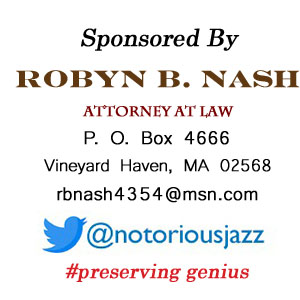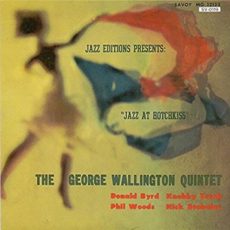
Daily Dose Of Jazz…
George Wallington was born Giacinto Figlia on October 27, 1924 in Palermo, Sicily and then moved to New York City with his family in 1925. His father sang opera and introduced his son to classical music, but Wallington listened to jazz after hearing the music of saxophonist Lester Young. Acquiring the name Wallington in high school by the neighborhood kids for his flashy clothes, he left school at the age of 15 to play piano in the city.
From 1943 to 1953 Wallington played with Dizzy Gillespie, Joe Marsala, Charlie Parker, Serge Chaloff, Allan Eager, Kai Winding, Terry Gibbs, Brew Moore, Al Cohn, Gerry Mulligan, Zoot Sims, and Red Rodney. He recorded as a leader for Savoy and Blue Note in 1950, toured Europe in 1953 with Lionel Hampton’s big band and in 1954-60 he led bands in New York City that contained rising musicians including Donald Byrd, Jackie McLean and Phil Woods. During this period he recorded as leader with these musicians for the Prestige and Atlantic labels.
1960 saw George leaving music and moving to Florida to work in the family air conditioning business. He cited the stress of endless touring as the reason, however, he returned to music in 1984 and recorded three albums. He also performed at the 1985 Kool Jazz Festival in New York.
Pianist and composer George Wallington, whose best-known compositions are Lemon Drop, and Godchild, passed away in Cape Coral, Miami, Florida on February 15, 1993.
More Posts: piano
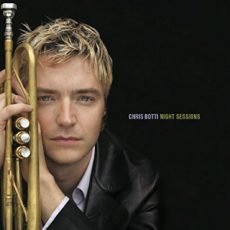
Daily Dose Of Jazz…
Christopher Stephen Botti was born October 12, 1962 in Portland, Oregon and raised in Corvallis, although he also spent two years of his childhood in Italy. His earliest musical influence was his mother, a classically trained pianist and part-time piano teacher and started playing the trumpet at nine-years-old, and committing to the instrument at age 12 after hearing Miles Davis play My Funny Valentine.
1981 saw Chris selected as a member of McDonald’s All American High School Jazz band which marked his first Carnegie Hall performance. At 17, he enrolled at Mount Hood Community College in Gresham, Oregon, by convincing his high school to allow him to fulfill his remaining senior year credits there which allowed him to play Portland clubs at night. Mount Hood’s band under Larry McVey, was a proving ground and regular stop for Stan Kenton and Mel Tormé when they were looking for new players.
After graduating from high school, Botti studied at the Indiana University School of Music, received two NEA grants and studied with trumpeter Woody Shaw and saxophonist George Coleman during two consecutive summer breaks. Leaving Indiana University during his senior year for short touring stints with Frank Sinatra and Buddy Rich, in 1985, he moved to New York City to hone his craft as a studio musician.
The Nineties had him in a decade long touring and recording relationship with Paul Simon and where he also performed/recorded with Aretha Franklin, Natalie Cole, Bette Midler, Joni Mitchell, Natalie Merchant, Scritti Politti, Roger Daltrey and others. He also met saxophonist Michael Brecker, co-produced a track on the Brecker Brothers’ Out of the Loop titled Evocations, and the album won a 1995 Grammy for Best Contemporary Jazz Performance.
His solo debut, First Wish,released in 1995 began a succession of recordings on the Verve record label. He became a member of the experimental, jazz fusion-oriented group Bruford Levin Upper Extremities, composed the score and recorded a soundtrack for the 1996 film Caught and closed out the century touring with Sting as a featured soloist that ultimately changed the course of his career.
In 2001 Chris signed with Columbia Records through an introduction by Bobby Colomby, drummer and founding member of Blood, Sweat & Tears, who also became his producer and manager. As his career advanced another succession of releases proved his jazz/pop crossover appeal, he played Oprah Winfrey’s Legends Ball weekend honoring her African American heroines, and in 2006, Billy Childs, Gil Goldstein and Heitor Pereira won the Grammy for Best Instrumental Arrangement Accompanying Vocalist(s) for What Are You Doing the Rest of Your Life? with Sting from Botti’s album To Love Again – The Duets.
He has performed and recorded with Andrea Bocelli, the Boston Pops Orchestra, Yo-Yo Ma, Steven Tyler, Josh Groban, Katharine McPhee, John Mayer, Baton Rouge Symphony Orchestra, Burt Bacharach, Gladys Knight, Jill Scott and Renee Olstead, among others. Trumpeter Chris Botti has hosted a radio show for several years where smooth meets cool jazz as he continues to perform, record, produce, compose and tour.
More Posts: trumpet
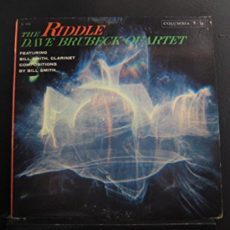
Daily Dose Of Jazz…
William Overton Smith was born on September 22, 1926 in Sacramento, California and grew up in Oakland, California, where he began playing clarinet at the age of ten. He put together a jazz group to play for dances at 13, and at the age of 15 he joined the Oakland Symphony. Idolizing Benny Goodman, after high school he completed a brief cross-country tour with a dance band that ended his romance for the life of a traveling jazz musician. He gave two weeks’ notice when the band reached Washington, D.C. and encouraged by an older band member to get the best education he could, he headed to New York.
Beginning his formal music studies at the Juilliard School of Music, he played New York jazz clubs like Kelly’s Stables at night. However, uninspired by the Juilliard faculty, he returned to California and at Mills College he met pianist Dave Brubeck, and became a member of the Dave Brubeck Octet, and later occasionally subbed for saxophonist Paul Desmond in the Dave Brubeck Quartet.
Winning the Prix de Paris presented Smith the opportunity for two years of study at the Paris Conservatory, and in 1957, he was awarded the prestigious Prix de Rome and spent six years in that city. He has since received numerous other awards, including two Guggenheim grants.
As an educator at the University of Southern California, he began a thirty-year career at the University of Washington School of Music in Seattle, where he taught music composition and performance. He co-led the forward-thinking Contemporary Group, first with Robert Suderburg and then with trombonist Stuart Dempster, from 1966 to 1997 and at 91 clarinetist Bill Smith is currently professor emeritus.
More Posts: clarinet
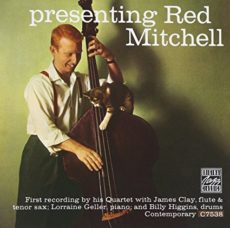
Daily Dose Of Jazz…
Born Keith Moore Mitchell, Red Mitchell came into this world on September 20, 1927 in New York City and was raised in New Jersey. His father loved music, his mother poetry and his first instruments were piano, alto saxophone, and clarinet. Receiving an engineering scholarship from Cornell University by 1947 he was in the Army playing bass. The next year he was in a jazz trio in New York City.
Red became known as for performing and recording with Mundell Lowe, Chubby Jackson, Charlie Ventura, Woody Herman, Red Norvo and Gerry Mulligan. After joining the West Coast jazz scene in the early 1950s in Los Angeles, California, he played with André Previn, Shelly Manne, Hampton Hawes, Billie Holiday, Stan Seltzer, Ornette Coleman, and others. He also recorded with Gene Ammons, Chet Baker, Louis Bellson, Paul Bley, Bob Brookmeyer, Buddy Collette, Maynard Ferguson, Tommy Flanagan, Jimmy Giuffre, Herbie Harper, Paul Horn, Stan Kenton, Barney Kessel, Karin Krog, Johnny Mandel, Jack Montrose, Gerry Mulligan, Bill Perkins, Richie Kamuca, Shorty Rogers, Dick Rosmini, Pete Rugolo, George Russell, Bud Shank, Clark Terry, Magni Wentzel and Pierre Strom.
He also worked as a bassist in the TV and film studios, occasionally appearing on screen and in the documentaries about Tal Farlow and Zoot Sims. Saxophonist Harold Land and Mitchell founded and co-led a quintet in the early 1960s. In 1966, Red began tuning his bass in fifths like the violin and his tuning method opened up many possibilities for bassists. Moving to Stockholm, Sweden in 1968, He won a Swedish Grammy Award in 1986 and again in 1991 for his recorded performances as a pianist, bassist, and vocalist, and for his compositions and poetic song lyrics.
During this period, Red performed and/or recorded with Clark Terry, Lee Konitz, Herb Ellis, Jim Hall, Joe Pass, Kenny Barron, Hank Jones, Ben Webster, Bill Mays, Warne Marsh, Jimmy Rowles, Phil Woods, Putte Wickman and collaborated in duos, most notably with pianist Roger Kellaway after the mid-1980s among others.
Returning to the United States and settling in Salem, Oregon, double bassist, pianist, composer, lyricist and poet Red Mitchell left three dozen albums as a leader and another sixty-six before passing away at age 65 on November 8, 1992.
More Posts: bass
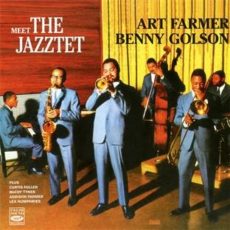
Daily Dose Of Jazz…
Addison Farmer was born August 21, 1928 an hour after his twin brother, in Council Bluffs, Iowa reportedly at 2201 Fourth Avenue. Their parents divorced when the boys were four, and their steelworker father was killed in a work accident not long after this. He moved with his grandfather, grandmother, mother, brother and sister to Phoenix, Arizona when he was four.
Addison and his brother moved to Los Angeles, California in 1945 and attended the music-oriented Jefferson High School, where they got music instruction and met other developing musicians such as Sonny Criss, Ernie Andrews, Big Jay McNeely, and Ed Thigpen. They brothers earned money by working in a cold-storage warehouse and by playing professionally. He went on to take bass lessons from Fred Zimmermann, and studied at Juilliard and the Manhattan School of Music.
By late 1945, Farmer was with Johnny Alston and His Orchestra recording for the Bihari Brothers’ Modern Music label, backing Jeanne De Metz. Shortly afterwards he recorded on the Blue Moon label with Al “Cake” Wichard and King Fleming and worked with Teddy Edwards’s band. He played and recorded in several groups with his brother and in ensembles led by Benny Golson, Gigi Gryce, Mose Allison, Jay McShann, Charlie Parker, Gene Ammons, Bob Brookmeyer, curtis Fuller, Hampton Hawes, Curtis Fuller, Stan Getz, Teo Macero, Sahib Shihab, Mal Waldron and Miles Davis.
Bassist Addison Farmer recorded extensively for the jazz label Prestige before passing away suddenly from bed death on February, 20, 1963 in New York City at the age of 34.
More Posts: bass



